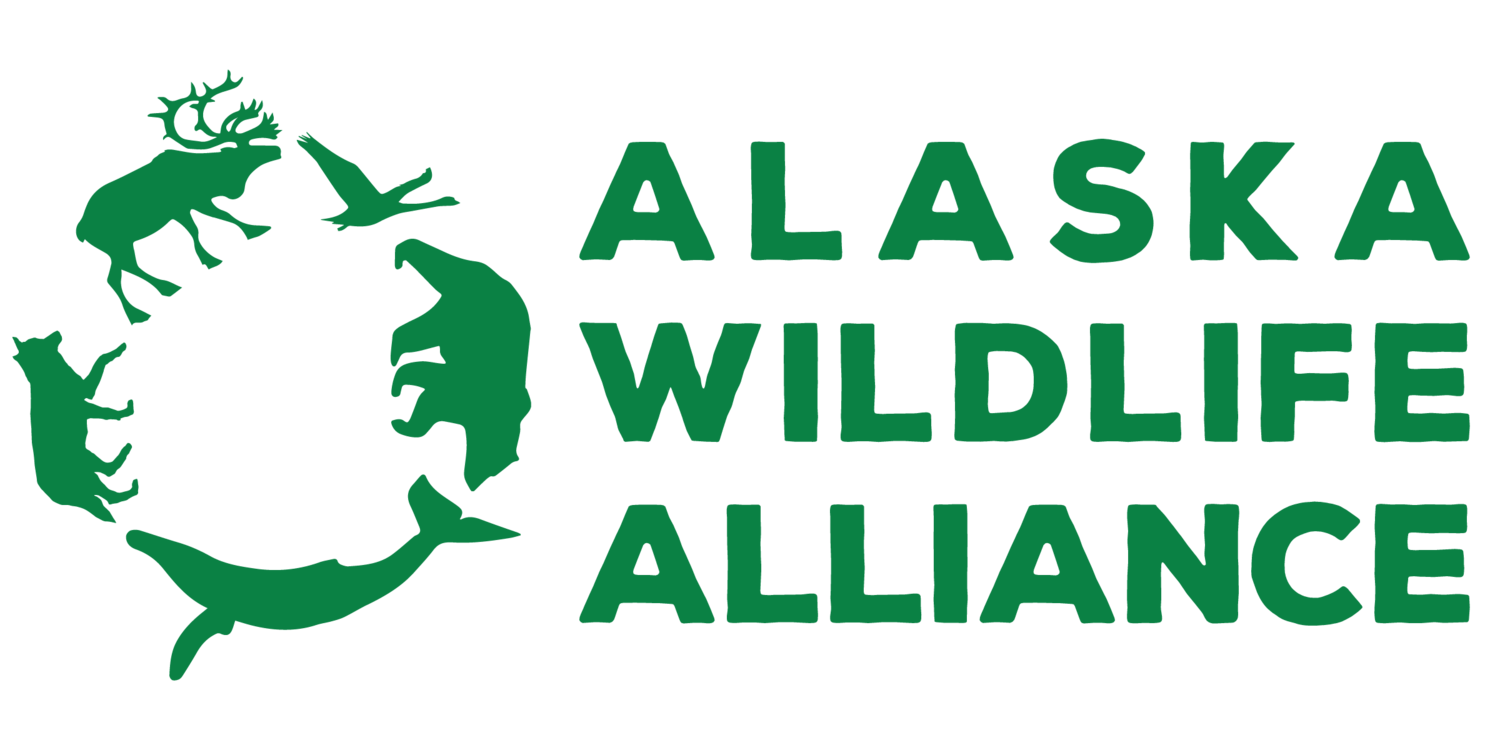AWA Files for Legal Action Against the State for Reopening the 2025 Mulchatna Bear Control Via Emergency Regulation
On March 17, the Alaska Superior Court ruled that the Mulchatna predator control program— which has allowed the State to aerially gun down nearly 200 brown bears in Western Alaska— had violated due process and the sustained yield provision of the Alaska Constitution. The predator control program was ruled as “unlawfully adopted and, therefore, void and without legal effect,” and the dispute was “remanded to the Board for further proceedings consistent with this opinion.”
Eight days after the ruling, on March 21 the Alaska Department of Fish and Game (ADFG) asked the Board of Game to adopt an emergency petition to reinstate the Mulchatna predator control program. Despite the recent court order and extensive public opposition, on March 27 the Board passed ADFG’s emergency regulation to reopen Mulchatna bear control for the 2025 season. Aerial gunning is expected to recommence in May.
Alaska Wildlife Alliance was incredibly dismayed by ADFG and the Board’s clear dismissal of the court ruling and public opposition, and we believe that the emergency petition and regulation is an attempt to circumvent the court ruling. This administrative maneuvering is likely unlawful and extremely unethical.
So, on April 10, Alaska Wildlife Alliance filed legal action, including a preliminary injunction against the State, on the basis that the emergency regulation violates due process and the sustained yield principle, and that there was a failure to establish a factual basis for an emergency. Our original lawsuit against the State was not about the merits or lack thereof of bear control; we were fighting against the process, or lack thereof, in which the bear control program was developed.
Pushing bear control through an emergency regulation (an unprecedented act by the Board of Game) further circumvented the public process and the need for baseline data to ensure success. If a preliminary injunction is issued, the State will have to cease its predator control actions until the issues brought up in the court ruling are fully addressed.
“By framing this bear control program as an ‘emergency’ ADFG hopes to bypass the concerns of the Superior Court, which found that the Board of Game ‘did not have adequate, relevant population studies or any genuine data about bear sustainability in the area of the control program prior to adopting a proposal that would have an obvious impact on a constitutionally protected public resources’. To date, ADFG still has still not presented any information about how the Mulchatna predator control program has or will impact bear populations, and it has no baseline data on bear population levels or dynamic before it started unlimited aerial gunning during the control period. Essentially, the State says ‘ trust us, the bear population will be fine’ without any citable data.” – Nicole Schmitt, Executive Director of Alaska Wildlife Alliance
Read the full Memorandum here.
Thank you to everyone for your support, especially everyone who has donated! Your help has been invaluable to us as we continue to fight for Mulchatna bears.
What About the Mulchatna Caribou Herd?
The Mulchatna bear control program was enacted as an attempt to bolster the Mulchatna caribou herd, which peaked at 200,000 animals in 1997, exceeded carrying capacity, and in 2019 had dropped to 13,000 animals. Once an important source of food for Alaskans in Western Alaska, subsistence hunting has been closed on the herd since 2021.
Alaska Wildlife Alliance cares deeply about Alaska’s subsistence needs, as well as the Mulchatna caribou herd’s recovery. We are not strictly against predator control, however, it needs to be backed by scientific data. If there is to be bear control for the Mulchatna caribou herd, there needs to be full due process and baseline data to measure if that bear control works.
Per the court ruling, “it is apparent that the state did not have adequate, relevant population studies or any genuine data about bear sustainability in the area of the control program prior to adopting a proposal that would have an obvious impact on a constitutionally protected public resource.” During the March 27 Board meeting to deliberate the emergency regulation, no additional up-to-date black or brown bear population or distribution studies for Unit 17 or 18 existed or were made available to the Board before it adopted the emergency regulation to continue bear control.
As it stands, there is no credible scientific evidence in the record to support the conclusion that Mulchatna bears can be killed sustainably. There is also overwhelming evidence that predator control programs do not work to recover struggling moose and caribou populations. And, per the State’s own research, the main reasons for the Mulchatna caribou herd decline are disease and a lack of food (due to climate change), not bear predation.
We want Mulchatna caribou to succeed, but we don’t believe the current, unlawful bear control program is the best way to help them.
To read AWA’s full position on Intensive Management and predator control, please read our position paper.



